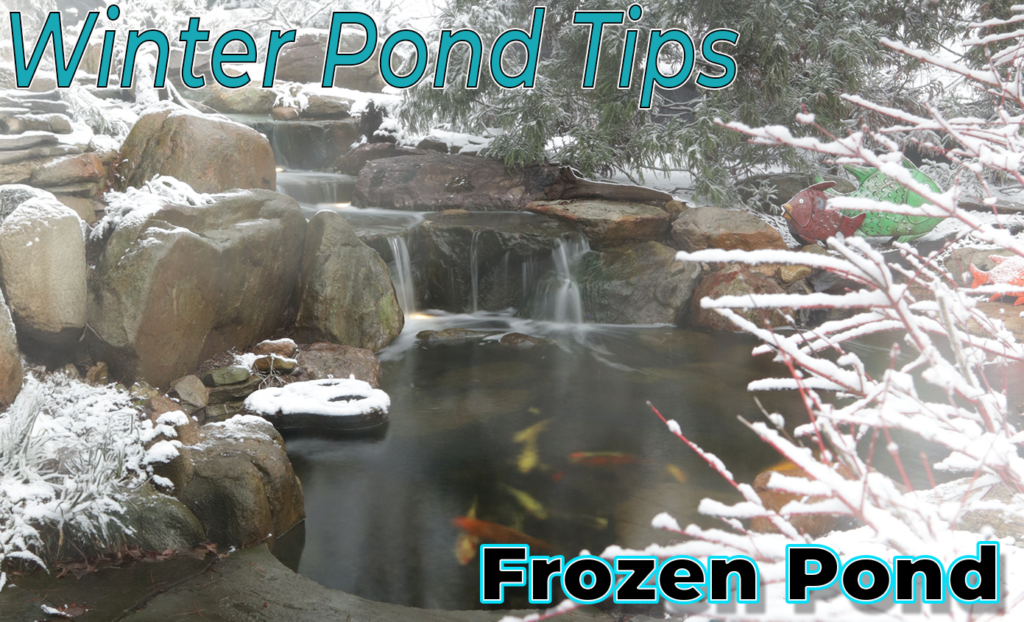
How to Prevent Ice Damage to Your Pond in New Jersey: Top Winter Survival Tips
How to prevent ice damage to your pond in New Jersey is a crucial concern for any pond owner facing the region’s frigid winter months. Ice may be picturesque, but it can wreak havoc on your pond, causing cracks, damaging liners, and harming your fish if you don’t take the right precautions. Luckily, with a few preventative measures, you can keep your pond and its inhabitants safe through the winter.
Let’s break down the key steps to ensure your pond survives New Jersey’s coldest months without ice-related issues.
Why Ice Can Be Harmful to Your Pond
Before we dive into the tips, let’s quickly cover why ice can be so damaging to ponds. When water freezes, it expands. This expansion can place enormous pressure on the edges and liner of your pond. Over time, this pressure can cause cracks, ruptures, or dislodged rocks, all of which can lead to expensive repairs. Additionally, if the surface of the pond freezes completely, it traps harmful gases underneath, which can be deadly to your fish.
Essential Tips for Preventing Ice Damage
1. Use a De-Icer
A de-icer is one of the most effective tools to prevent ice damage in your pond. De-icers keep a small hole in the ice, which allows harmful gases to escape and prevents excessive pressure from building up. This gas exchange is crucial for keeping your fish healthy during the winter. Without it, carbon dioxide and other toxic gases can accumulate under the ice, creating dangerous conditions for your koi or other pond fish.
Pro Tip: Make sure you choose a de-icer that’s appropriately sized for your pond. Larger ponds may need more than one to keep enough space ice-free.
2. Keep Water Moving
Moving water is much less likely to freeze, so using a pond pump or aerator can be a lifesaver during the winter months. By maintaining circulation, you prevent the entire surface of the pond from freezing solid. If you have a waterfall, consider keeping it running, but make sure to monitor it for ice buildup. Ice can form around the edges of a waterfall or stream and create blockages, potentially redirecting water out of the pond.
- Aerators: A pond aerator works by pushing bubbles from the bottom of the pond, helping circulate water and preventing a full freeze. This movement also increases oxygen levels in the water, which is vital for fish during the cold months.
Tip: If you decide to run your pump or aerator, regularly check the equipment to ensure it isn’t freezing over. Frozen pumps can burn out, leading to costly repairs.
3. Reinforce the Pond’s Edges
Ice often accumulates at the edges of a pond, where it can exert pressure on the liner or rockwork. Over time, this can cause cracks in your pond’s structure. To combat this, reinforce the edges of your pond with additional gravel or large rocks that can absorb the expansion of ice. This extra protection helps prevent the liner from tearing or the rocks from shifting.
What About the Fish?
In New Jersey winters, your fish will enter a state of torpor, where their metabolism slows and they become less active. However, they still need oxygen to survive, which is why it’s so important to maintain some open water for gas exchange. If the pond freezes over entirely, your fish could suffocate due to a lack of oxygen. Using a de-icer or aerator will keep your pond safe for your fish all winter long.
Bonus Tip: Stop feeding your fish once the water temperature drops below 50°F (10°C). At this point, their metabolism is so slow that they won’t be able to properly digest food, which could rot in their stomachs and cause illness.
Preventing Ice Damage Beyond the Pond
Ice damage isn’t just a risk for the pond itself; surrounding features can also suffer. Any fountains, statues, or decorative elements near the water’s edge can be affected by freezing temperatures and expanding ice. Be sure to check that these structures are stable and not at risk of damage from ice formation.
Tip: If you have a pond liner, periodically inspect it before winter to ensure there are no weak spots or potential areas for cracks to form.
Conclusion
Now you know how to prevent ice damage to your pond in New Jersey, and with a little planning, your pond will stay safe and sound through the winter. By using tools like de-icers, keeping the water moving, and reinforcing your pond’s edges, you can avoid the costly and stressful repairs that ice damage can cause. Your fish will also stay healthy and happy, even as the temperatures plummet.
Need help choosing the right de-icer or pond maintenance tools? Contact us at 973-627-0515 for expert advice and winter pond supplies in New Jersey!
For more content with tips, tricks and amazing water feature goodness, check us out on YouTube!